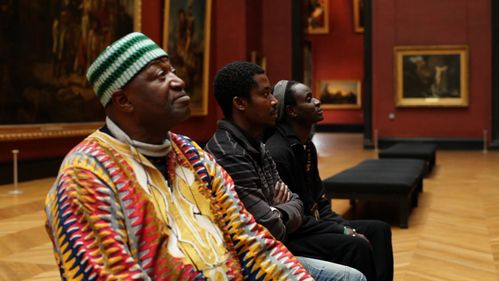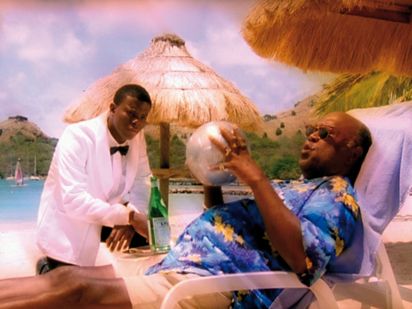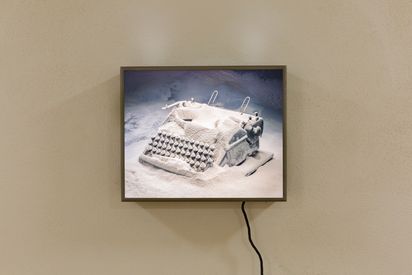Marcel Odenbach’s works explore collective memory and the cultural reappraisal of the past. His film Im Schiffbruch nicht schwimmen können reflects on today’s migration crisis as a consequence of European colonialism. The film’s backdrop is the Louvre in Paris, a repository of history and place of remembrance. In the film, three African men enter a monumental exhibition space and silently contemplate Théodore Géricault’s painting The Raft of the Medusa (1819). This world-famous painting chronicles a human catastrophe on the high seas in connection with French colonial policy in West Africa.
For this work, Odenbach conducted interviews with the three men about their escape to Europe. Quotes from these narrations are faded in against the background of the roaring sea. They bear witness to homesickness, worries, fears and what it means to be a stranger in one’s own country. The montage emphasizes the dramatic character of the film: the camera constantly switches between excerpts from Géricault’s painting and close-ups of the men watching. In the final sequences, the sea is revealed as both a promising and a threatening place of escape.

Im Schiffbruch nicht schwimmen können
- Year 2011
- Edition Edition 2/40 (+ 10 AP)
- Material/Technique Single-channel video (color, sound)
- Dimensions Variable
- Length 8'15''
- Category Media Art
- Collection Sammlung Goetz, München
- Albums Encounters. Artistic perspectives on cinema
Immigration/Colonialism
Museum

